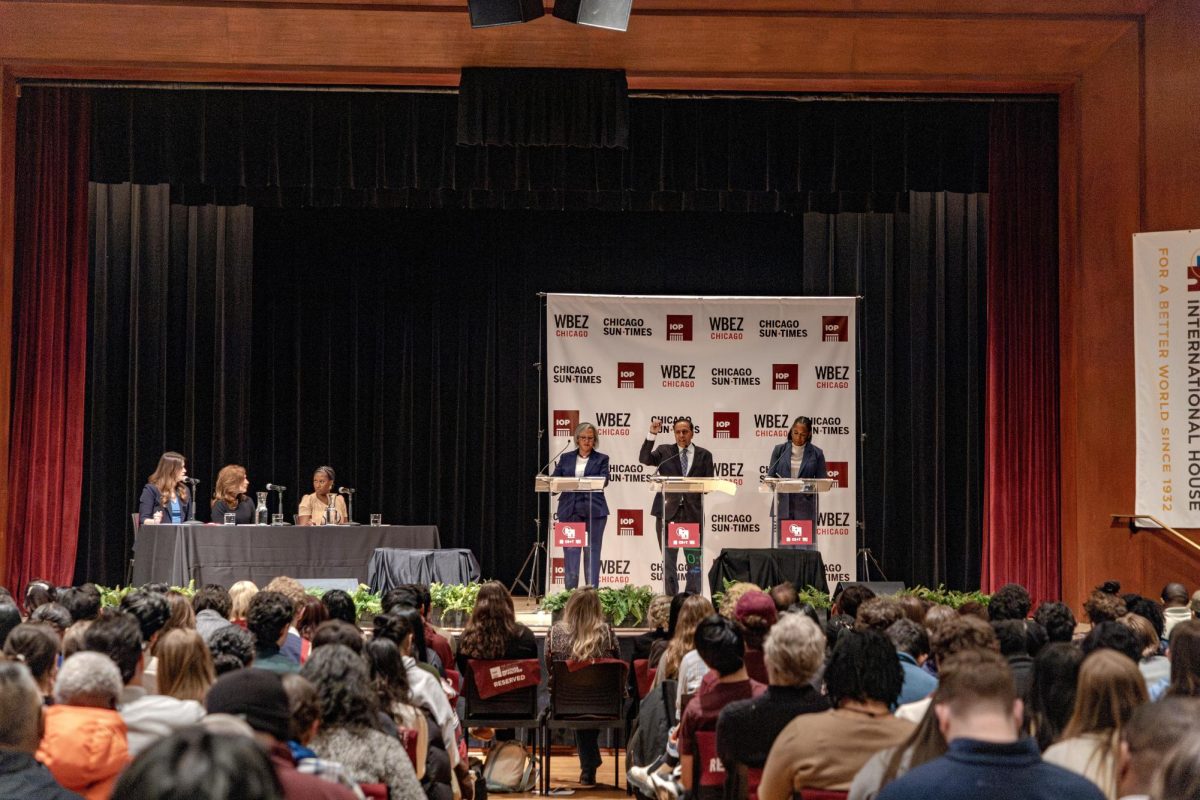On April 1, about 650 of the over 1,000 residents, fellows, and interns at the University of Chicago Medical Center (UCM) signed an election petition to join the Committee of Interns and Residents (CIR) labor union. If a simple majority of 50 percent vote yes in the election, the house staff will become a union represented by CIR.
According to organizing committee member Aisha Amuda, who is a fourth-year internal medicine and pediatrics resident, the decision to unionize has been building among residents and fellows for the past two years, with patient care as a driving force.
“We are forming a union because we are very, very dedicated to caring for our patients,” Amuda said. “At UChicago, [residents] play a really crucial role in patient care, and because of that responsibility as physicians, we deserve to have a way to negotiate for improvements that affect not only us but the patient as well.”
General surgery resident Vanessa VanDruff said a significant factor driving the decision to unionize was the nature of residency programs, which create a consistent lack of negotiation power, especially relative to other professions.
“I think that residency in general, not specific to the University of Chicago, is a very challenging time of your life,” VanDruff said. “You are in a very vulnerable position for several years after dedicating at least eight years of education prior to you entering residency, and… you need to be able to advocate for the things that you need.”
Union organizer and nephrology fellow Nicholas Kowalczyk described the changes residents are seeking through unionization, noting a desire for “increased salar[ies] that match inflation, improved health insurance benefits, improved childcare, [and] improved paternity and maternity.”
“It makes complete sense to me that when residents and fellows are not overworked, when we are paid a salary that we can live off of and take care of our families with… that then translates to better patient care,” Kowalczyk said.
Kowalczyk and other UCM residents and fellows join a growing trend of hospital house staff across the country seeking improved working conditions and benefits through unionization. Over the past three years, national union membership among residents has expanded from 17,000 to over 32,000.
While resident unions have existed since 1934, Kowalczyk attributes their recent momentum to the influx of patients during COVID-19. In 2020 alone, over three dozen hospitals declared bankruptcy in the United States, with at least four of those closures occurring at Chicago-area hospitals.
“After the worst of the surges [of COVID], I think [residents] were disillusioned by how the hospital treated us,” Kowalczyk said. “[The hospital] always… gives us the idea that we are all part of this… ‘learning family,’ that we are students on the job, but during COVID I think we came to realize that we were really just viewed as bodies and workers. So three years ago, we met with an organizer from CIR to get an idea of how we can get to an election… It took a couple years of a sort of quiet grassroots campaign reaching out to different residents and fellows all across the University of Chicago between North Shore and Hyde Park to form this committee.”
In addition to supporting a wider community after the closure of other local hospitals like Mercy Hospital in 2021, UChicago also hosts the only Level 1 Adult Trauma Center on the South Side. According to Kowalczyk, UCM’s infrastructure has been struggling to meet this increased demand.
“There are patients always in the hallways unable to get a room,” Kowalczyk said. “The ICUs and the floor rooms are always overfilled, and patients are waiting in the ED (Emergency Department) for several hours for a room. The hospital was not built with a trauma center in mind. That being said, I think we have an opportunity to fix that… The community’s need is [for a] great trauma center, an emergency room that’s able to see them, primary care that’s able to see them at any time. So those are my priorities for the hospital.”
In a statement to the Maroon, UCM said it was committed to supporting its residents and patients.
“As one of the nation’s top teaching hospitals, the University of Chicago Medical Center is deeply committed to training the next generation of doctors,” the statement said. “We work hard to foster an exceptional learning and care environment that both supports future generations of physicians and prepares them for exemplary careers in medicine. We immensely value our residents and fellows, their perspectives, and the roles they play in providing exceptional care to our patients and community.”
Reflecting on the committee’s progress, VanDruff emphasized that the unionization effort is ultimately rooted in responsibility to both the community and the institution.
“My perspective on unionizing and many of our residents’ perspective on unionizing is that it is not coming from a place of grievance,” VanDruff said. “It’s coming from a place of pride, pride in my job… pride in the patients that I serve. It’s coming from a sense of responsibility and duty to leave the University of Chicago better than I found it.”















